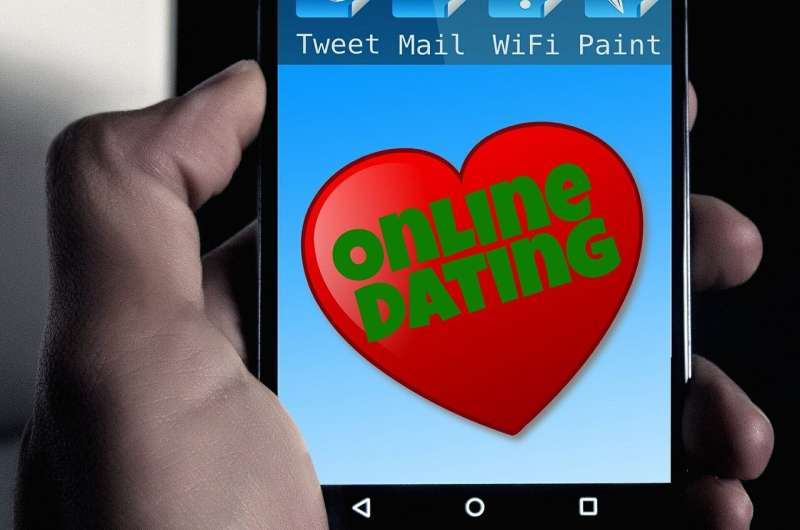This article has been reviewed according to Science X's editorial process and policies. Editors have highlighted the following attributes while ensuring the content's credibility:
fact-checked
trusted source
written by researcher(s)
proofread
Why using dating apps for public health messaging is an ethical dilemma

Dating apps are not just about finding love or hooking up. They're becoming increasingly important in the communication of public health messaging, particularly sexual health.
In 2023, Harvard Public Health magazine suggested that dating apps could "become a key component in [sexually infectious diseases] prevention." And their prediction seems to be spot on. Grindr, a dating app popular among men who have sex with men, for example, has recently partnered with MPOWER in Ireland and The Love Tank in London to allow users to order HIV test kits through the app. While these partnerships hold promise for public health, they also raise important ethical challenges. Alongside colleagues from the UK and US, we have published a discussion of these challenges and proposed ways of addressing them.
During the COVID-19 pandemic, more people than ever started using dating apps. Today, apps such as Tinder, Match, or Grindr have millions of users worldwide. A recent Pew survey in the US showed that more than half of people aged under 30 had used dating apps. Most dating apps can be accessed from smartphones, allowing users to find other people based on shared interests, preferences or location.
A recent systematic review concluded that apps have multiple benefits for public health, including the ability to effectively target specific groups. In the US, Building Healthy Online Communities is a successful example of collaborating with dating apps to promote sexual health. And, during the recent monkeypox (mpox) outbreak, Grindr provided information about the virus and its vaccine to users.
Profit, privacy and prejudice
But most apps are profit-generators for businesses and operate in ethical and regulatory contexts that are very different to those of medical or health-related professions. One major concern is privacy, as apps collect vast amounts of personal data. Cybersecurity experts have argued that apps are a "security and privacy minefield". This is, in part, because the main goal of apps is "generating, capturing and controlling user data" for profit.
Unfortunately, there are many examples of apps mishandling data. For example, Grindr has been fined for sharing sensitive user data with third parties, including users' HIV status. This misuse of data can have severe consequences, including outing people in unsafe environments.
Dating apps can also reproduce the prejudices and discrimination all too common in wider society. Research shows that many users, particularly from marginalized groups, experience harassment, including racism and ableism, on these platforms. A 2019 study of the experiences of dating apps among rural sexual minority men in the US found that online dating often led to "deception, bullying or discrimination, and harassment or coercion."
Some apps, such as Grindr, have removed the option for users to filter according to race—but other apps are designed with features which allow, if not encourage, discrimination. Discriminatory experiences undermine users' trust in dating apps, making marginalized groups more reluctant to use them. This also means that marginalized groups may be less likely to access public health information and help through dating apps.
Some dating apps operate with opaque policies. For example, Grindr and Tinder can terminate any user's account, for any reason and without any notice. Some public health organizations who had been using apps to disseminate information have had their profiles blocked on some apps.
Future collaborations with apps should prioritize the benefit of users over those of the app businesses, develop transparent data policies that prevent users' data from being shared for profit, ensure the apps' commitment to anti-discrimination and anti-harassment, and provide links to health and well-being services beyond the apps.
Dating apps have the potential to be powerful allies in public health, especially in reaching populations that have often been ignored. However, their use must be carefully managed to avoid compromising user privacy, safety and marginalization.
This article is republished from The Conversation under a Creative Commons license. Read the original article.![]()




















